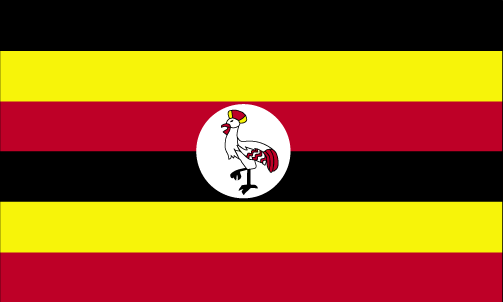
The colonial boundaries created by Britain to delimit Uganda grouped together a wide range of ethnic groups with different political systems and cultures. These differences prevented the establishment of a working political community after independence was achieved in 1962. The dictatorial regime of Idi AMIN (1971-79) was responsible for the deaths of some 300,000 opponents; guerrilla war and human rights abuses under Milton OBOTE (1980-85) claimed at least another 100,000 lives. The rule of Yoweri MUSEVENI since 1986 has brought relative stability and economic growth to Uganda. A constitutional referendum in 2005 cancelled a 19-year ban on multi-party politics.
copper, cobalt, hydropower, limestone, salt, arable land, gold
arable land: 27.94%
permanent crops: 9.11%
other: 62.95% (2011)
35,918,915
country comparison to the world: 36
note: estimates for this country explicitly take into account the effects of excess mortality due to AIDS; this can result in lower life expectancy, higher infant mortality, higher death rates, lower
Baganda 16.9%, Banyankole 9.5%, Basoga 8.4%, Bakiga 6.9%, Iteso 6.4%, Langi 6.1%, Acholi 4.7%, Bagisu 4.6%, Lugbara 4.2%, Bunyoro 2.7%, other 29.6% (2002 census)
Roman Catholic 41.9%, Protestant 42% (Anglican 35.9%, Pentecostal 4.6%, Seventh-Day Adventist 1.5%), Muslim 12.1%, other 3.1%, none 0.9% (2002 census)
English (official national language, taught in grade schools, used in courts of law and by most newspapers and some radio broadcasts), Ganda or Luganda (most widely used of the Niger-Congo languages, preferred for native language publications in the capit
definition: age 15 and over can read and write
total population: 73.2%
male: 82.6%
female: 64.6% (2010 est.)
Kampala
republic
9 October 1962 (from the UK)
Independence Day, 9 October (1962)